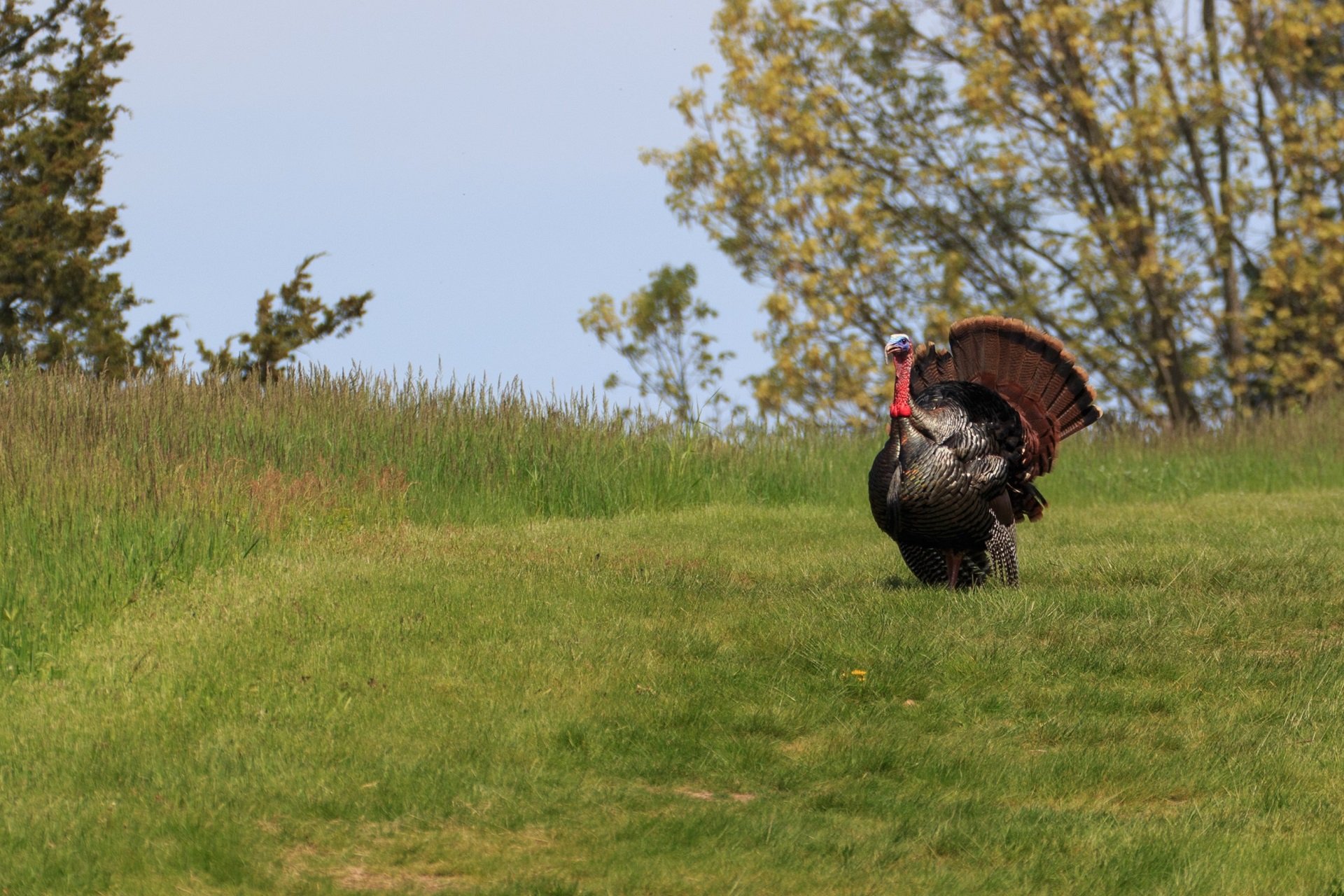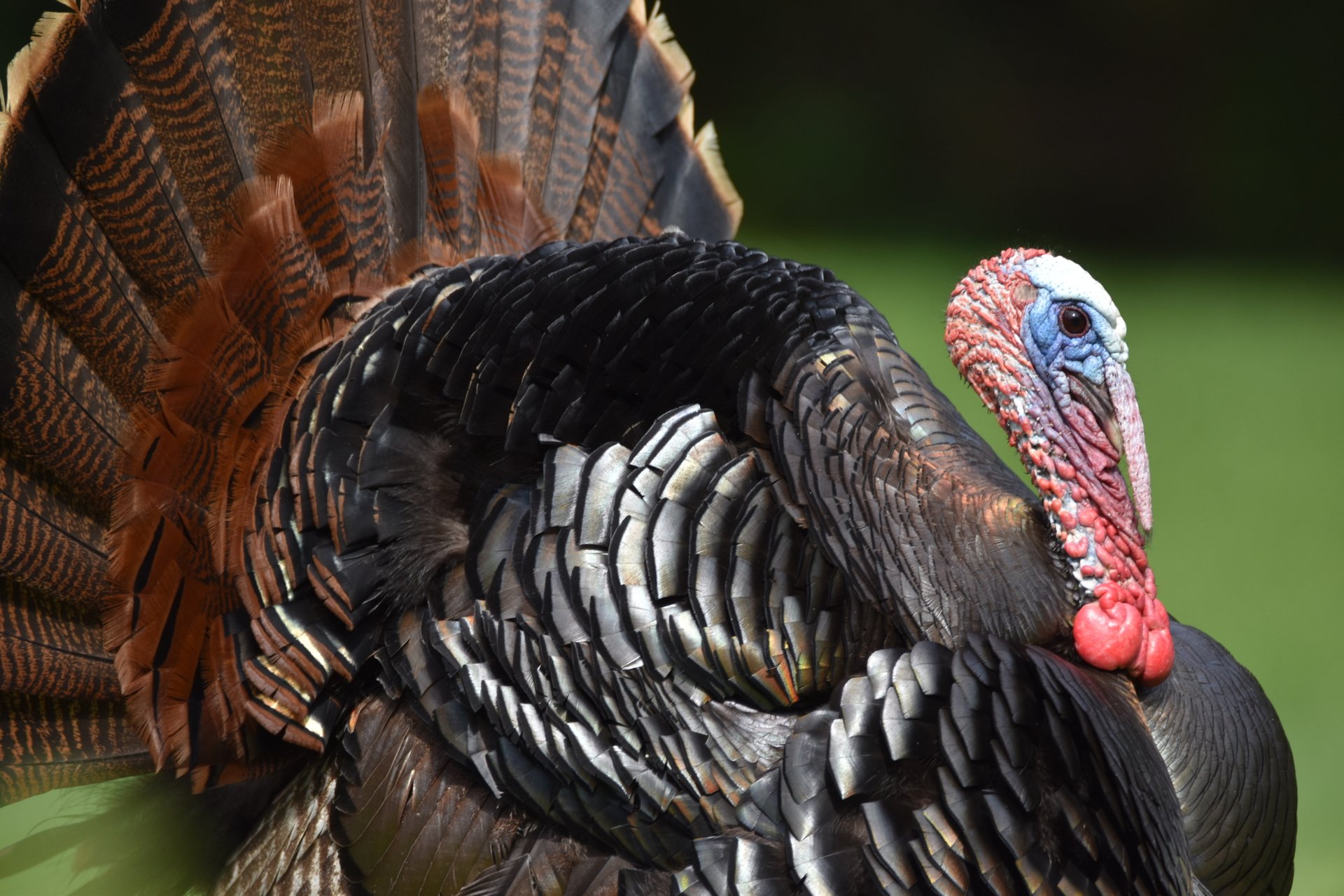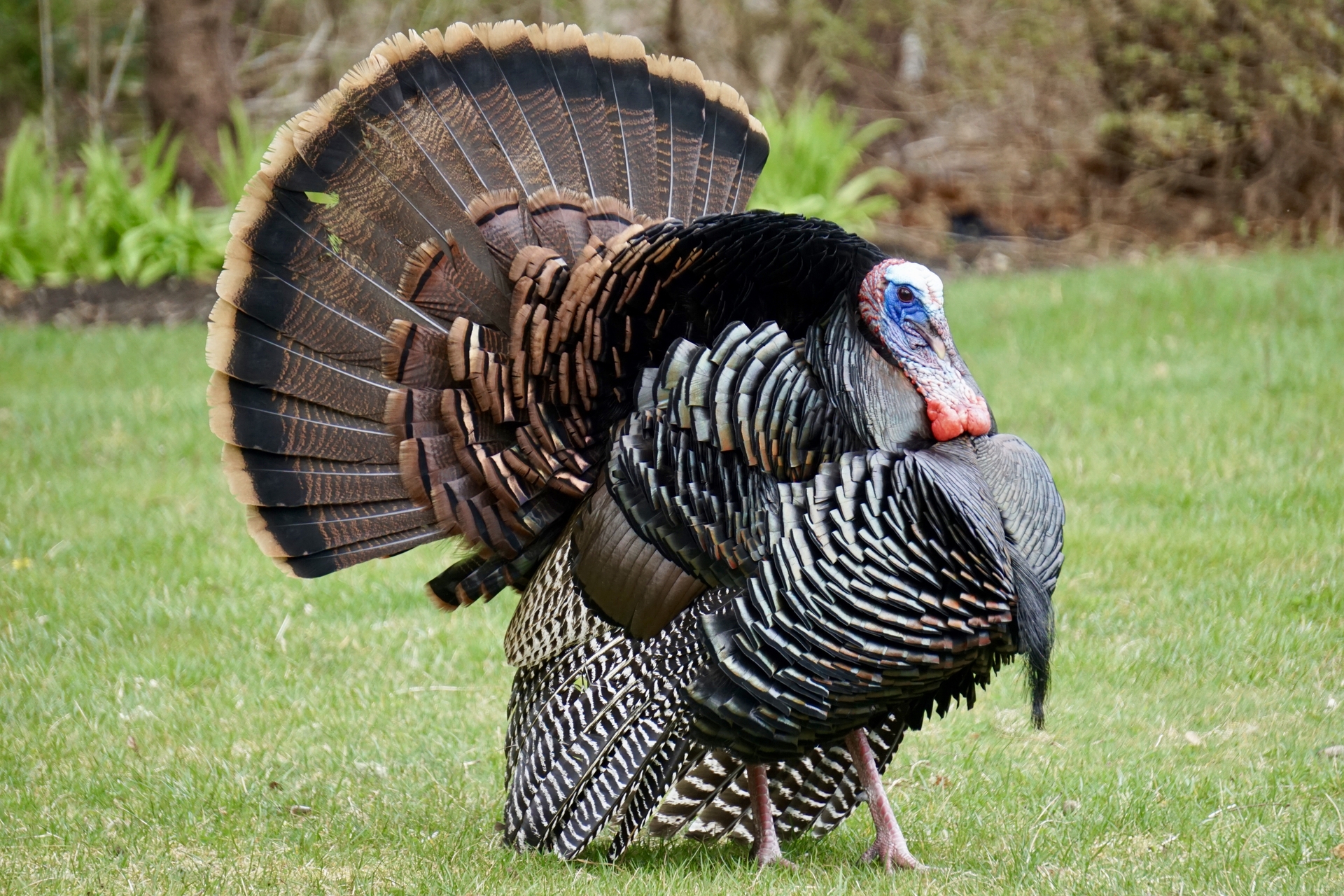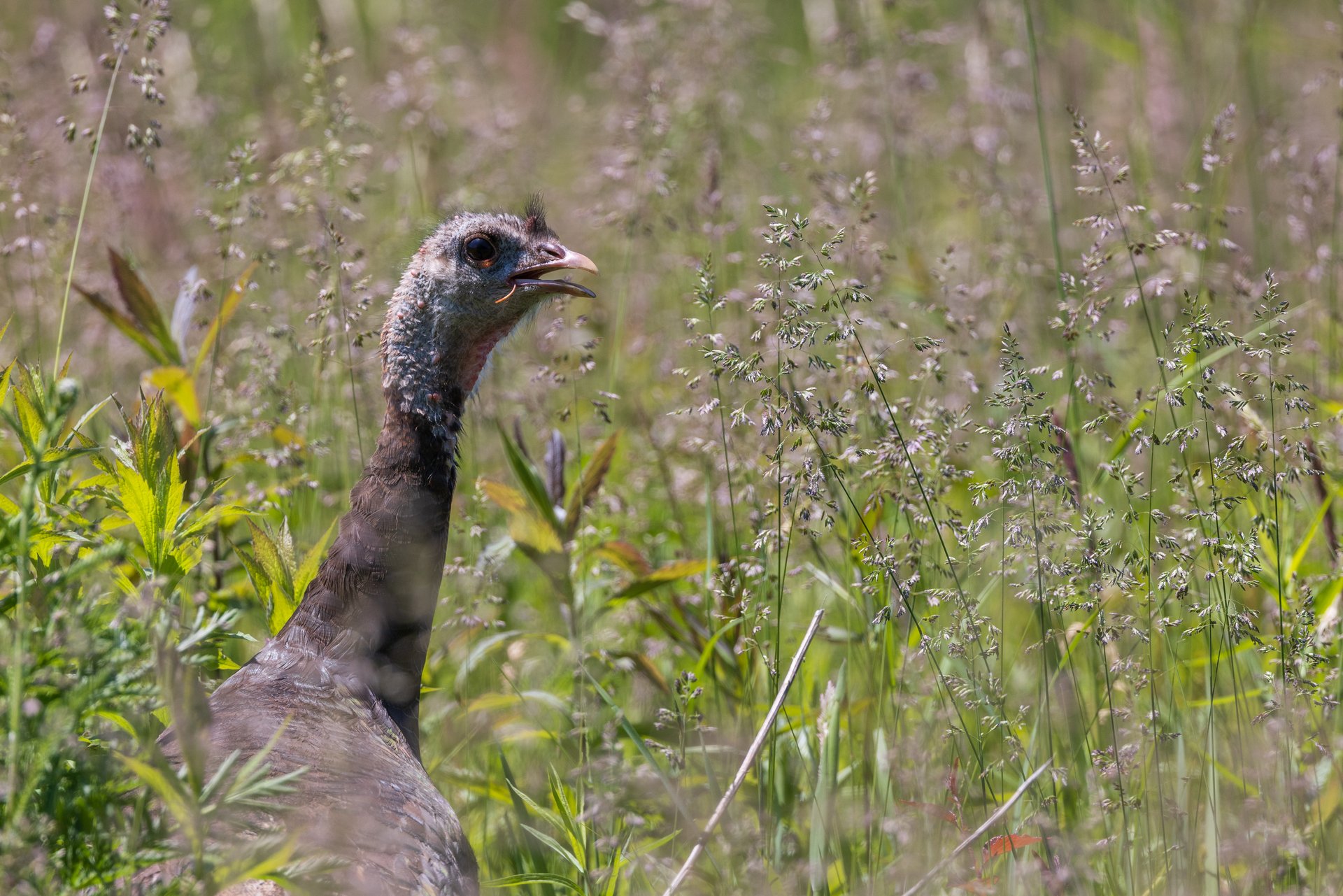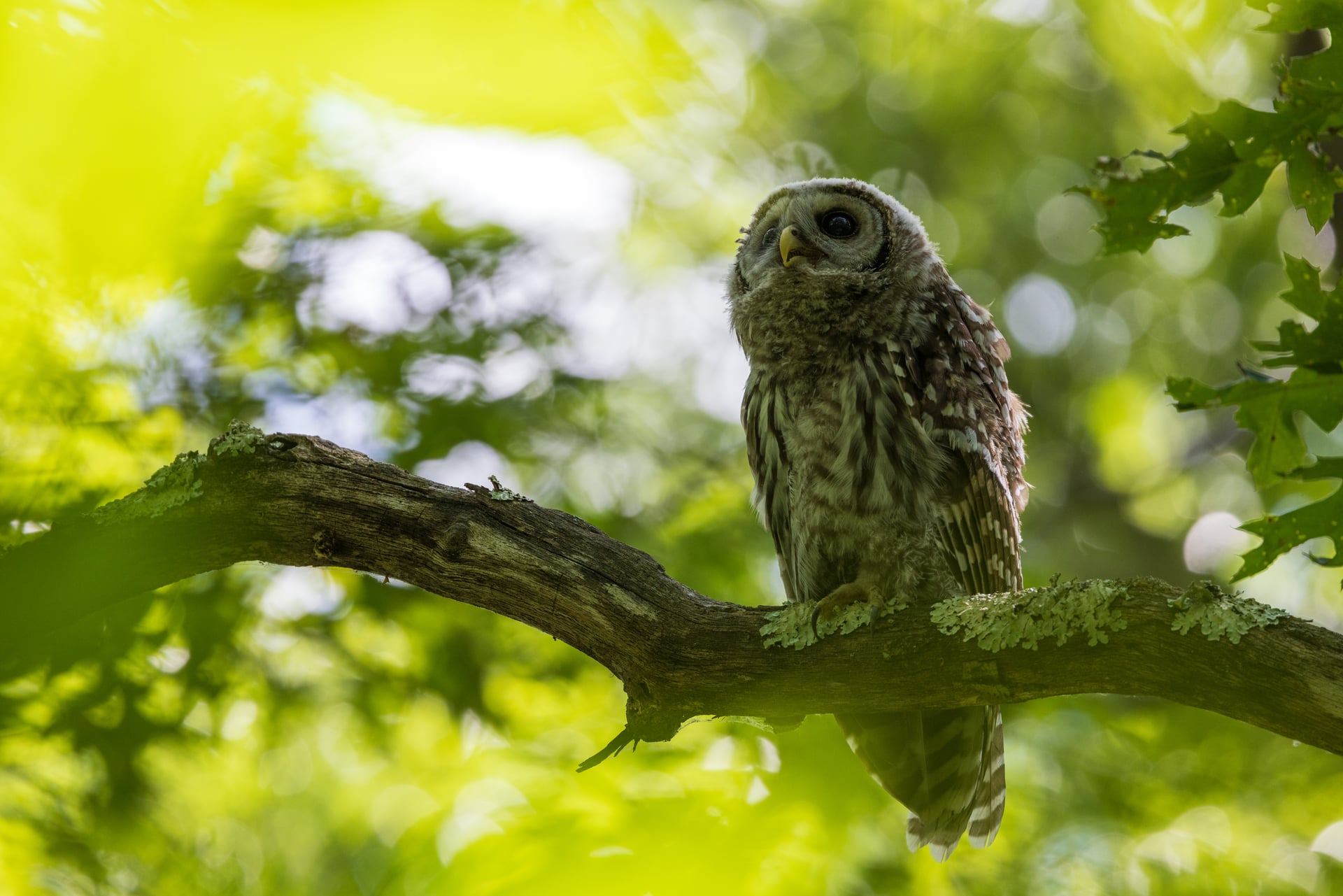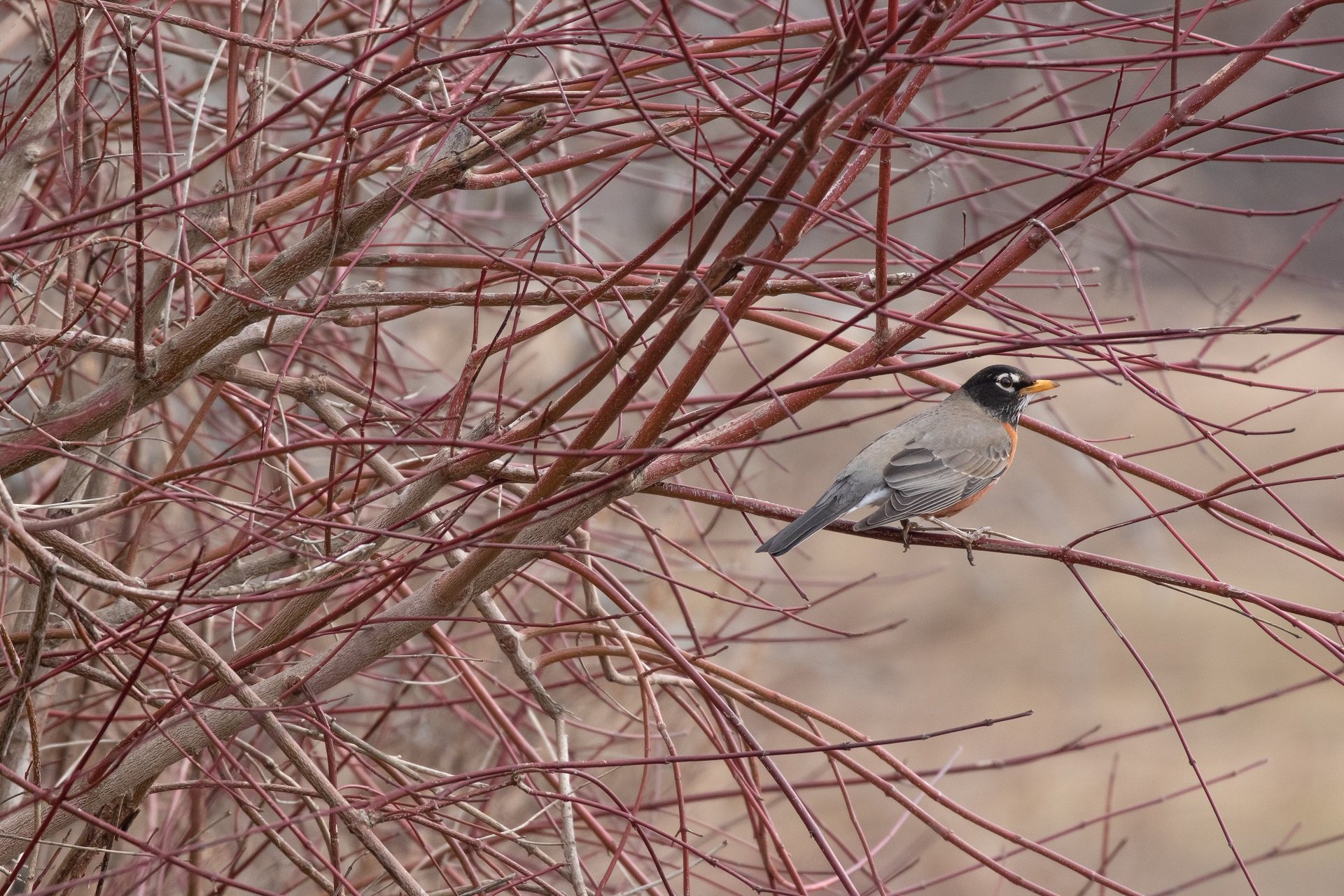Birds in Massachusetts
Wild Turkeys
The return of the Wild Turkey to New England is a marvelous success story. Once all but extinct from Massachusetts, this iconic bird can be found just about anywhere—woods, suburbs, and even cities.
How to Identify Wild Turkeys
A Wild Turkey can stand four feet tall, with a large, bulky body covered with bronzy, iridescent feathers. The tom (male) has a reddish blue head and a hair-like “beard” protruding from the breast. The smaller female is duller in coloration than the male.
Wild Turkey Behavior
In the spring, tom turkeys make their famous gobble in order to lure in females. Courtship begins when the tom spreads its tail, fluffs out its feathers, swells out the facial wattles, and struts in front of the females. Males are polygamous and will mate with several females if given the opportunity.
Can Wild Turkeys Fly?
Wild Turkeys can fly for short distances up to 55 miles per hour. Not only can turkeys fly, they also roost in trees at night!
What Do Wild Turkeys Eat?
Adults feed largely on plant material, including nuts, berries, grains, seeds, grass, roots, and bulbs, but they will also supplement their diet with small invertebrates. The young feed mainly on insects.
Are Turkeys Aggressive?
If you have Wild Turkeys in your yard, there’s a good chance a bird feeder is nearby. If the turkeys aren’t causing a problem, you can let them be. But turkeys can be aggressive, chasing people, pets, cars, and practically anything else that moves. You can also find them “attacking” their reflection in shiny cars or windows.
There are several options to fending off an aggressive wild turkey:
- Keep the area under bird feeders clean and, if necessary, stop feeding altogether to avoid attracting turkeys into the yard. Also, let neighbors know as well.
- String silver mylar streamers (found in party supply stores) from the top of 2 ½-foot-high stakes. The eye-level streamers will wave in the wind and reflect light, which should discourage turkeys from entering the area.
- Make loud noise, such as banging pots and pans together, when a turkey approaches.
Wild Turkey Call
Threats Facing Wild Turkeys
When Europeans first settled in Massachusetts, Wild Turkeys were plentiful throughout the state. With an increasing population, however, over-hunting occurred, and forests were gradually cut down for farmland, thus eliminating the turkey’s habitat. The last Wild Turkey in Massachusetts was killed on Mount Tom in 1851.
Fast-forward to 1972, when the MA Division of Fisheries and Wildlife (now known as Mass Wildlife), in cooperation with the University of Massachusetts, received permission to live-trap turkeys in New York state and release them in Massachusetts. Between 1972 and 1973, a total of 37 birds were released. Today, the estimated fall population in Massachusetts is more than 30-35,000 birds.
Where Can I See Wild Turkeys?
Wild turkeys are now a common fixture across all of Massachusetts, which means the chances of encountering them have increased as well. Turkeys thrive not only in rural populations but have been spotted in cities and suburbs as well.
How Mass Audubon is Supporting Birds in Massachusetts
Mass Audubon works at our wildlife sanctuaries and beyond to ensure that the nature of Massachusetts continues to thrive. By scientifically monitoring Massachusetts birdlife, Mass Audubon informs important conservation decisions and launches targeted initiatives to help at-risk species. In addition, fostering healthy habitats, supporting native species, and educating people about the importance of nature conservation is critical to our success. Learn more about our work
How You Can Support Birds in Massachusetts
Mass Audubon supports birds like the Wild Turkey every day, but we couldn’t do it without the support of our 160,000+ members.
Help support Wild Turkeys, and birds like them, by becoming a member today.
Upcoming Bird Programs
See MoreWednesday Morning Birding
-
Newburyport and vicinity
-
Wednesday, December 31
9:30am-12:30pm
Adults
New Year's Day Birdwatching
-
Ipswich River Wildlife Sanctuary, Topsfield
-
Thursday, January 1
8:00-11:00am
Adults
New Year's Day Birdwatching
-
Joppa Flats Education Center, Newburyport
-
Thursday, January 1
8:00-11:00am
Adults
Stay Connected
Don't miss a beat on all the ways you can get outdoors, celebrate nature, and get involved.



